detail profile guy decomble
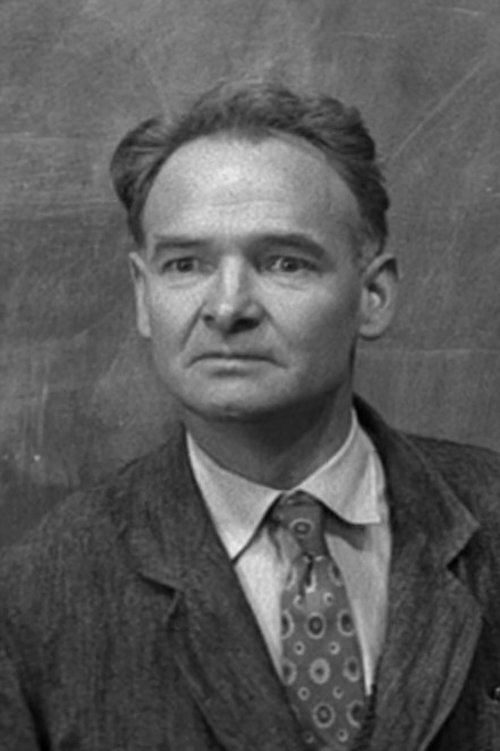
Guy Decomble
Ги Декомбль
atau dikenal sebagai
Riwayat Hidup
Guy Decomble (1910–1964) was a French film and television actor.
A character actor he played in a number of supporting parts in postwar cinema.
One of his better known roles is as the teacher in The 400 Blows by François Truffaut.
Info Pribadi
Peran Yang Di Mainkan Guy Decomble
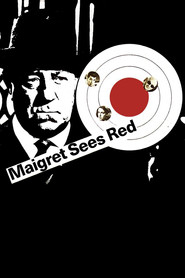 Gangsters from the United States try...
Gangsters from the United States try...Maigret Sees Red 1963
Gangsters from the United States try to kill a key government witness whose testimony could help land an influential mobster in jail. It's up to detective Maigret to deal with the FBI and a series of underworld figures to save the life of the witness...
 For young Parisian boy Antoine Doinel...
For young Parisian boy Antoine Doinel...The 400 Blows 1959
For young Parisian boy Antoine Doinel, life is one difficult situation after another. Surrounded by inconsiderate adults, including his neglectful parents, Antoine spends his days with his best friend, Rene, trying to plan for a better life. When one of their schemes goes awry, Antoine ends up in trouble with the law, leading to even more conflicts with unsympathetic authority figures.
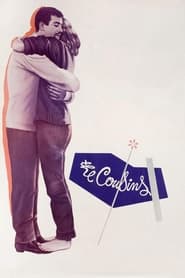 Young provincial Charles arrives in Paris...
Young provincial Charles arrives in Paris...The Cousins 1959
Young provincial Charles arrives in Paris to stay with his cousin Paul while studying law. Paul is a decadent, bohemian pleasure-seeker who shows the meek, diligent Charles the thrills of city life. When Charles falls for Florence, one of Paul's acquaintances, relationships begin to shift.
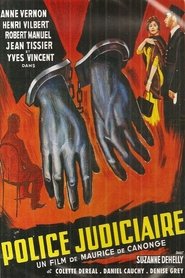 The detectives of the Paris Judicial...
The detectives of the Paris Judicial...Police Judiciaire 1958
The detectives of the Paris Judicial Police, based at the Quai des Orfèvres, are mobilized by four criminal cases. A double murder, perpetrated in a hotel on the Place de Clichy, intrigues the investigators. The owner and a little maid were murdered in cold blood.
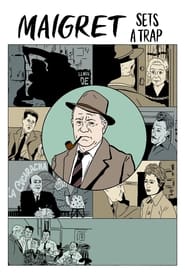 Four women were murdered each was...
Four women were murdered each was...Maigret Sets a Trap 1958
Four women were murdered, each was knifed and, though they had their clothes torn, they weren't molested. As the famed police inspector Jules Maigret pieces the clues together, he comes to realize that for the elusive man that he suspects to be unmasked, he has to set him a trap.
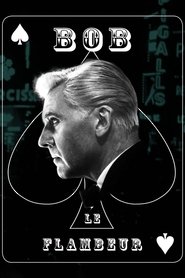 In Paris Bob Montagne is practically...
In Paris Bob Montagne is practically...Bob le Flambeur 1956
In Paris, Bob Montagne is practically synonymous with gambling -- and winning. He is kind, classy and well-liked by virtually everyone in town, including police inspector Ledru. However, when Bob's luck turns sour, he begins to lose friends and makes the most desperate gamble of his life: to rob the Deauville casino during Grand Prix weekend, when the vaults are full. Unfortunately, Bob soon learns that the game is rigged and the cops are on to him.
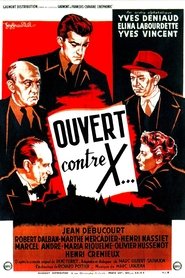 Paul Dorgres a wealthy industrialist has...
Paul Dorgres a wealthy industrialist has...The Case Against X 1952
Paul Dorgères, a wealthy industrialist, has been mysteriously murdered. The investigation is entrusted to the experienced Chief Inspector Bonnardel and his young rookie assistant, Inspector Richard. Suspicion turns to his mistress Catherine Villard, with whom he had just broken up on the night of the crime. She is soon arrested and charged. However, Inspector Richard discovers a button at the scene of the crime which could help him to trace the trail and confound the culprit(s).
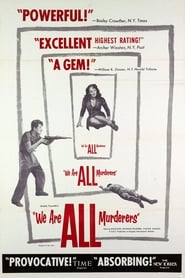 Originally titled Nous Sommes Tout des...
Originally titled Nous Sommes Tout des...We Are All Murderers 1952
Originally titled Nous Sommes Tout des Assassins, We Are All Murderers was directed by Andre Cayette, a former lawyer who detested France's execution system. Charles Spaak's screenplay makes no attempt to launder the four principal characters (Marcel Mouloudji, Raymond Pellegrin, Antoinine Balpetre, Julien Verdeir): never mind the motivations, these are all hardened murderers. Still, the film condemns the sadistic ritual through which these four men are brought to the guillotine. In France, the policy is to never tell the condemned man when the execution will occur--and then to show up without warning and drag the victim kicking and screaming to his doom, without any opportunity to make peace with himself or his Maker. By the end of this harrowing film, the audience feels as dehumanized as the four "protagonists." We Are All Murderers was roundly roasted by the French law enforcement establishment, but it won a special jury prize at the 1952 Cannes Film Festival.
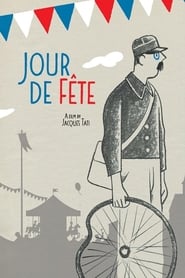 Jour de Fte tells the story...
Jour de Fte tells the story...Jour de Fête 1949
Jour de Fête tells the story of an inept and easily-distracted French mailman who frequently interrupts his duties to converse with the local inhabitants, as well as inspect the traveling fair that has come to his small community. Influenced by too much wine and a newsreel account of rapid transportation methods used by the United States postal system, he goes to hilarious lengths to speed the delivery of mail while aboard his bicycle.
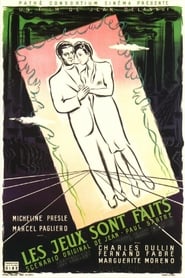 Les jeux sont faits is a...
Les jeux sont faits is a...The Chips Are Down 1947
"Les jeux sont faits," is a fantasy film based on a screenplay by French existentialist philosopher Jean-Paul Sartre. A society heiress and a resistance fighter are tragically killed at the same moment and meet in the afterlife. They are offered a second chance at life if they can prove their love is real or be doomed to roam the earth as ghosts.
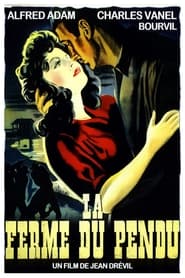 A large farm in Vende The...
A large farm in Vende The...Hanged Man's Farm 1945
A large farm in Vendée. The father is dying and the three brothers and sister swear not to marry not to break up the field. Months pass. Francis, the eldest, took things in hand. For him, the promise to their father is sacred. So he does everything for his brothers and his sister Amanda are not tempted. However, the latter lets himself courted by a young man from the neighboring village ...
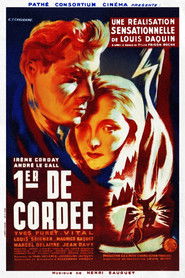 A screen adaptation of the wellknown...
A screen adaptation of the wellknown...First in Line 1944
A screen adaptation of the well-known novel by Roger Frison-Roche about the harsh lives of mountain guides and their families in the French Alps, near Chamonix and the French/Swiss/Italian borders... Like his father, Zian Servettaz is a dedicated mountain man. His Italian-born wife Bianca does not adjust well to his mountain village in France, and to the ever life-threatening dangers presented by his mountain guiding and climbing. She briefly returns to Italy and to her family. However, after Zian's insistence and trip to Italy, she returns to mountain life in the French Alps. Once back there, events will unfold, changing their lives as well as those of other mountain people forever.
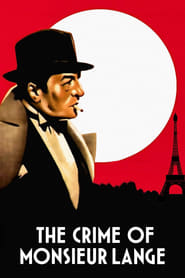 A man and a woman arrive...
A man and a woman arrive...The Crime of Monsieur Lange 1936
A man and a woman arrive in a cafe-hotel near the Belgian frontier. The customers recognize the man from the police's description: his name is Amedee Lange, and he murdered somebody in Paris. Lange was an employee in a printing works. His boss was a real bastard, swindling every one, seducing female workers... One day he fled to avoid facing his creditors, and the workers set up a cooperative to go on working. What then made Lange a killer?
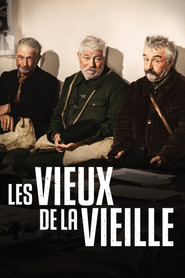 Three friends leave their village for...
Three friends leave their village for... Bum Archimde wants to spend the...
Bum Archimde wants to spend the...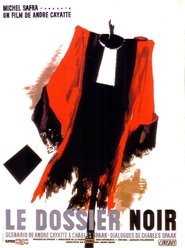 In the 1950s in a small...
In the 1950s in a small...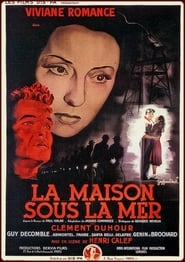 A stranger named Constant disrupts the...
A stranger named Constant disrupts the...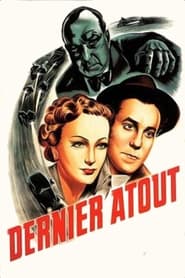 A man is shot In the...
A man is shot In the...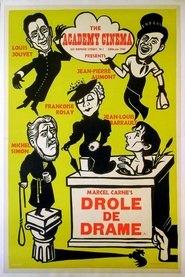 A French farce set in Victorian...
A French farce set in Victorian...